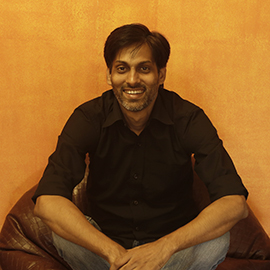95 netas & babus, 21 literary folk: who's the World Hindi meet for?

The event
- PM will inaugurate the World Hindi Conference on 10 September
- Organising panel has 95 netas & babus, only 21 literary people
- Stated aim: to propagate Hindi internationally; cost: over Rs 20 crore
The objections
- Is the meet just a social gathering for politicians and bureaucrats?
- This is the event\'s 10th edition. Have the previous ones achieved anything
- Is it justified to spend so much on promoting just one of India\'s 22 official languages?
Bhopal is set to host the 10th World Hindi Conference. The three-day meet will be inaugurated by the prime minister on 10 September while Home Minister Rajnath Singh and actor Amitabh Bachchan are expected at the concluding session
That's all very well. If, that is, you disregard the several uncomfortable questions it has raised.
Who is this mega quadrennial event for and what is its purpose? Is it really meant to promote India's most spoken language or merely a social gathering for politicians and bureaucrats?
What have the previous conferences achieved? Is it justified to spend public money - an estimate pegs the expenditure at over Rs 20 crore - on promoting just one among the country's 22 official languages?
What has triggered the questions is this absurdity: the organising committee of the "literary" event has a mammoth 129 members, but only 21 have any standing in the world of literature, journalism and arts.
The rest: 95 politicians and bureaucrats, including Foreign Minister Sushma Swaraj, who heads it, eight academicians or vice chancellors and five others whose profiles haven't even been described.
That's not all. The list of people scheduled to chair the sessions reads: Sushma Swaraj, Shivraj Singh Chauhan, Harshvardhan, Ravi Shankar Prasad, Keshrinath Tripathi.
The organising committee has 129 members - only 21 have any literary standing, 95 are netas, babus
Governors of several states have been invited to the event - though Madhya Pradesh's Ram Naresh Yadav was notably left out until the very last moment - while noted literary figures have been snubbed.
Ashok Vajpayee is an eminent poet of Bhopal. He has given the city Bharat Bhawan, one of its biggest centres of art, culture and literature. But he's not on the list of invitees.
Not a healthy state of affairs
This begs the question: is it sensible to entrust the task of espousing the cause of Hindi to a panel three-fourths of whose members are non-literary?
Om Thanvi, the former Jansatta editor who is in the panel, is scathing: "Only bureaucrats get to decide who will be included in the committee. They prefer their own fraternity and their political masters. This reduces the whole affair to an occasion for a family holiday."
This "neta-babu nexus", Thanvi adds, has badly hurt the cause of Hindi. "The Aurangzeb Road was recently rechristened as APJ Abdul Kalam Road. It's the same set of bureaucrats who opted for the word 'road' instead of 'Marg'. This shows how much they know about Hindi," he says.
"The version of Hindi used in their offices is beyond the comprehension of a common man. It has led to unnecessary adulteration of Hindi by other languages."
The same goes for debates and sessions that take place at these conferences. Thanvi says he had brought these issues to Swaraj's notice during a meeting of the committee. She assured to sort them out, yet the "same old mindset" is reflected in the declared agenda of the conference.
Ashok Chakradhar: The event's purpose is to propagate Hindi and netas, babus are instrumental in that
Noted Hindi poet Ashok Chakradhar, however, justifies the governing class' stranglehold. "The event is not merely a literary exercise. Its purpose is to propagate Hindi and make it adapt to modern times. Leaders and bureaucrats are instrumental in taking the language to the world," he says.
There are other eminent people though who have questioned the very premise of the organising a World Hindi Conference.
Speaking at the 7th edition, noted Hindi writer Shrilal Shukla had said, "It isn't clear to anybody why this conference is held. The stated agenda of getting Hindi included among UN's official language is only a limited one. There is no other motive that can be achieved by the conference."
The UN has a set procedure for adopting a new official language - a budget of Rs 100 crore and support of 127 member states. But this is not even on conference's agenda.
Hindi, as an official language, is under the purview of the home ministry. For many, this is absurd: to hand over Hindi's fate to a ministry whose primary job is to look after security matters seems illogical. Still, the responsibility to organise the conference lies with the foreign ministry.
The state does not own a language, it belongs to the masses. Also, languages change and adapt with the times, yet the government seems determined to control the progression of Hindi.
How well will that go?
First published: 10 September 2015, 1:35 IST





![BJP's Kapil Mishra recreates Shankar Mahadevan’s ‘Breathless’ song to highlight Delhi pollution [WATCH] BJP's Kapil Mishra recreates Shankar Mahadevan’s ‘Breathless’ song to highlight Delhi pollution [WATCH]](https://images.catchnews.com/upload/2022/11/03/kapil-mishra_240884_300x172.png)

![Anupam Kher shares pictures of his toned body on 67th birthday [MUST SEE] Anupam Kher shares pictures of his toned body on 67th birthday [MUST SEE]](https://images.catchnews.com/upload/2022/03/07/Anupam_kher_231145_300x172.jpg)






